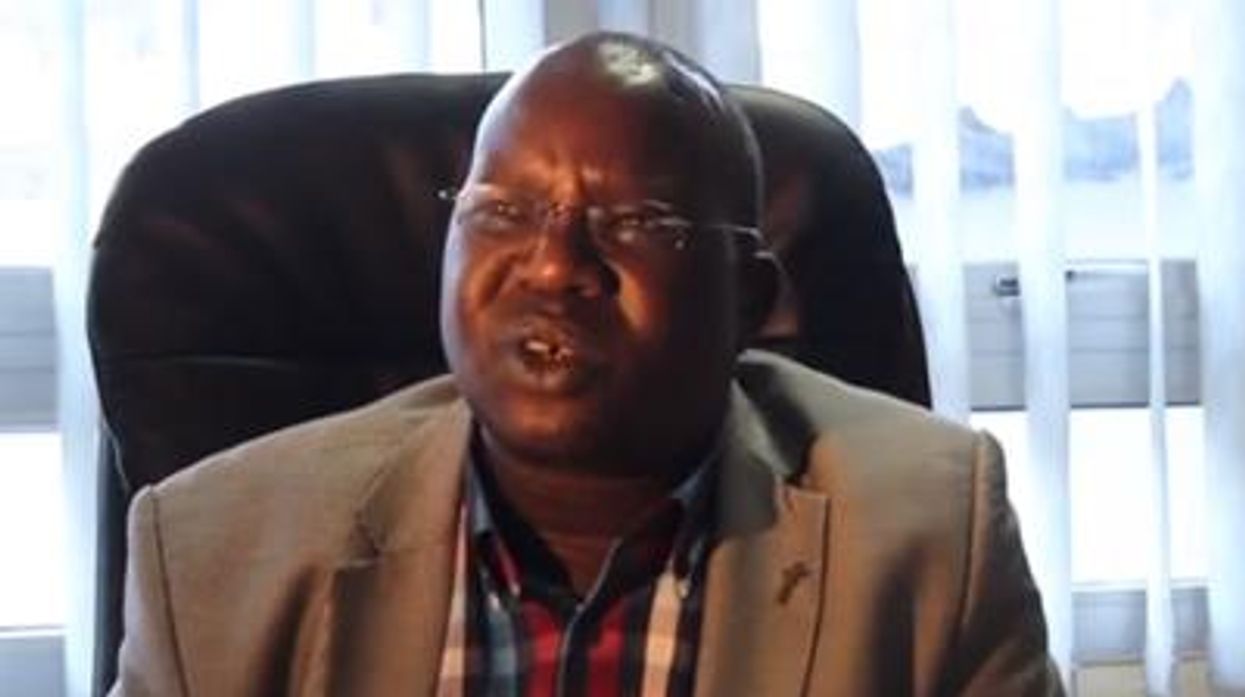LGBT advocates, organizations, and supporters around the world are raising their voices in opposition to Uganda's imminent enactment of the Anti-Homosexuality Bill, which would prescribe life imprisonment for many LGBT people and impose seven-year jail sentences for anyone who performs a same-sex marriage.
But antigay officials in Uganda are doubling down on the homophobic rhetoric, with the nation's minister of ethics claiming that Uganda is actually tolerant of its gay, lesbian, bisexual, transgender, and intersex citizens.
"Of course we've said we are tolerant," Simon Lokodo told Agence France-Presse Tuesday. "That's what we're saying -- we're not slaughtering them."
In a separate interview, Lokodo told Reuters that warnings from other countries that the law would "complicate" relations with Uganda were tantamount to blackmail. It was a thinly veiled reference to President Obama's statement Monday condemning the likely enactment of the draconian law and alluding to possible cuts in foreign aid if Uganda if this comes to pass. Parliament has passed the bill, and it awaits President Yoweri Museveni's signature.
Ugandan LGBT activists stress that they are grateful for international support, though they don't think cutting aid is necessarily the wisest way to protest the decision. Instead, the activists with Uganda's Civil Society Coalition on Human Rights and Constitutional Law today released a list of actions international allies can take to support the country's embattled LGBT population. In addition to organizing worldwide displays of solidarity with LGBT Ugandans and calling on multinational companies to come out in strong opposition to the pending law, activists suggested that equality-minded nations recall their ambassadors to Uganda to host urgent, strategic discussions about how to move diplomatic relations forward.
Wednesday afternoo, the Human Rights Campaign echoed that sentiment, urging U.S. Secretary of State John Kerry to recall U.S. ambassadors to Uganda and Nigeria.
"The Ugandan and Nigerian governments' decisions to treat their LGBT citizens like criminals cannot be accepted as business as usual by the U.S. government," said HRC president Chad Griffin. "We urge Secretary Kerry to recall both ambassadors for consultations in Washington to make clear the seriousness of the situation in both countries."
Coincidentally, just minutes later, the State Department released a statement from Kerry, condemning the "hateful rhetoric" used by the Gambian president in a national address Tuesday, in which the leader called gay people "vermin" and suggested they be dealt with like mosquitoes.
"Human rights and fundamental freedoms belong to all individuals," said Kerry, according to the statement. "The United States stands by you no matter where you are and no matter who you love."
Even the United Nations condemned the bill's imminent signing, noting that further demonization of LGBT people in Uganda could worsen the ongoing health crisis in the East African nation, according to AllAfrica.
"I strongly urge the Ugandan authorities to reject the bill and ensure the human rights and dignity of all people in Uganda," said Michel Sidibe, executive director of the Joint U.N. Programme on HIV/AIDS, known as UNAIDS. "Uganda was the first country in Africa to break the conspiracy of silence on AIDS -- and to give voice to the most marginalized -- but now I am scared that this bill will take Uganda backwards, relinquishing its leadership role in the AIDS response."
After initially declining to sign the bill after it was hastily passed by Parliament December 20, Ugandan president Yoweri Museveni then said he would not sign it unless he saw scientific proof that homosexuality was a choice. A quickly composed team of antigay lawmakers "with medical backgrounds" compiled a report that apparently convinced the president that being gay is "socially acquired" and "curable," despite some conciliatory statements that admitted efforts to change a person's sexual orientation are generally unsuccessful.
"Even a panel composed mainly of government officials who came together in a rush and were vulnerable to pressure have asserted that sexual orientation is linked to innate traits of biology and is normal," said Clare Byarugaba, co-coordinator of the Civil Society Coalition on Human Rights and Constitutional Law. "The president claims to be interested in facts, but this is apparently not the case. Why would he want to use manipulations of science to pass a law that violates human rights, is unconstitutional and will oppress his people?"
A spokesperson for Museveni confirmed that the president had decided to assent to the bill on February 14, though he's yet to scrawl his signature on the bill. But even if Museveni does not sign the bill by the deadline Sunday, activists report that it can automatically return to Parliament, where it would need only to be brought up again to formally become law. Speaker of Parliament Rebecca Kadaga has made no secret of her support for the legislation, and activists expect her to present the bill as soon as she is legally able to do so.





































































Charlie Kirk DID say stoning gay people was the 'perfect law' — and these other heinous quotes